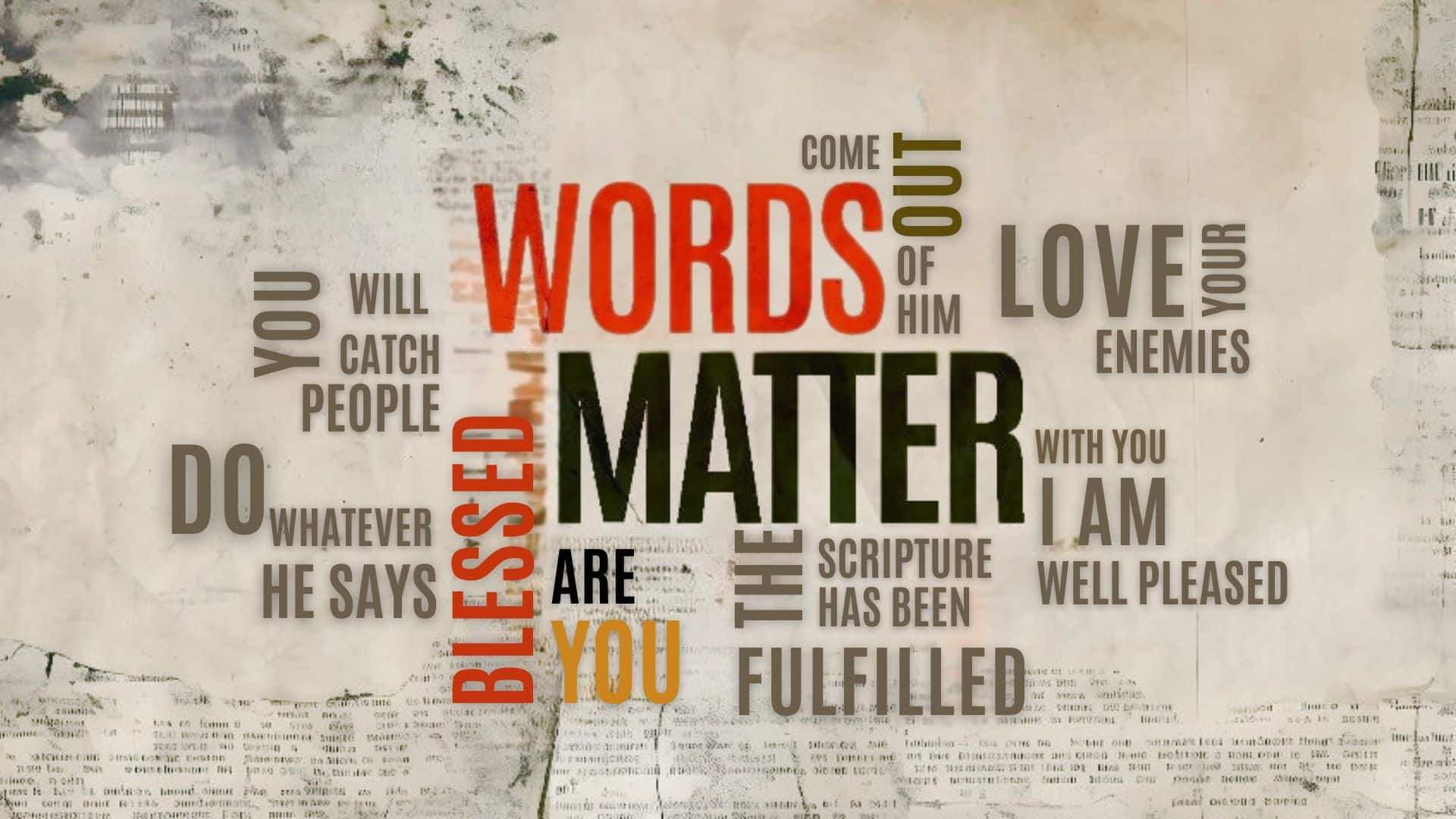
Luke 6:17-26
February 16, 2025
I was working on my taxes recently and as I looked through my records and receipts from last year, I realized that 2024 was a year of repairs and replacements. It started in January of last year when my 9 year-old washing machine was not working properly. I called a repairman to come out and look at it and he said, “I can fix your washing machine, but there is no guarantee it will last. It could break again in a month or it could last for several years. Or you could just get a new machine. So what would you like me to do?” Now I realize we live in a disposable society that encourages us to throw out the old and replace it with something new. But I think we all believe there are still some things that are worth fixing. After all, if something breaks on our cars, we usually take them to a mechanic to be fixed. And unless the mechanic tells us that it's the transmission, which usually means your car cannot be fixed, since the transmission is sort of the heart of the car which enables it to move, we will often try to fix our cars before we get a new one.
So, I decided to have the washing machine repaired, because like a car repair, it was less expensive than buying a new one. However, six months later the machine broke again and this time I decided to just get a new one. Around the same time, the air conditioning in my house stopped working. I called a repairman to look at it and after doing a thorough inspection he said, “I’m sorry, your air conditioning unit is over 20 years old and the cost to repair your system will be about the same as the cost for a new one.” As he explained to me in great detail what was wrong he finally said, “Basically the heart of the system is broken, so you really need to get a new unit.” Realizing that I did not have any other options, I agreed to have him install a new system.
In our Gospel lesson for today Jesus reveals to His disciples the “spiritual heart” of the faith that He came to embody. In the verses leading up to this text, Jesus had just called His 12 chosen disciples, and He knows that these 12 people will basically constitute the heart of the first
generation of the church. Therefore, knowing the importance of representing and proclaiming the heart of His mission and message, Jesus begins by saying to this large crowd of people who had come to hear Him and to be healed by Him, “Blessed are you who are poor, for yours is the kingdom of God. Blessed are you who are hungry now, for you shall be satisfied. Blessed are you who weep now, for you shall laugh. Blessed are you when people hate you and when they exclude you and revile and spurn your name as evil.” Sounds a bit odd, doesn’t it? And Jesus continues saying, “But woe to you who are rich, for you have received your consolation. Woe to you who are full now, for you shall be hungry. Woe to you who laugh now, for you shall mourn and weep. Woe to you, when all people speak well of you.”
Now what is going on here? I’m sure there were people there that day from every walk of life: rich/poor, hungry/well-fed, healthy/sick, happy/sad; just imagine what they had to be thinking when they heard these words. What do you think your reaction would have been if you had been there at that moment? It might depend on the category to which you belonged.
I’m sure these words must have come as a shock to the disciples. Do you think they asked each other, “Does He mean that if we are poor we are blessed, but if we are rich we have woe?” Did the disciple, Peter, a blue-collar fisherman, turn to the disciple, Matthew, a wealthy tax-collector, and say, “Jesus says I am the blessed one, but you’re the one who is in trouble. Does that make sense? Is being poor supposed to make me happy, and are you miserable because you are rich?” I’m sure there were people there who were suffering and sad, did they wonder, “When are we going to laugh? Does this man, Jesus, mean that I am happy because I am weeping? These are not tears of joy right now, they are tears of grief.”
But with His words, what Jesus is doing is getting to the heart of our unbelieving world and the heart of His spirit. It’s important for us to understand that Jesus often spoke in contrasts. For example, later on He says, “It is in dying that you shall live.” “It is in losing your life that you
find it.” “It is in giving that you receive.” So what we see in our text are 4 statements of blessing followed by 4 statements of woe; and each of the four statements of blessing have a direct contrast in the four statements of woe. As we take a closer look at these statements, it appears that the four statements of blessing seem to be speaking of spiritual things, while the second 4 statements of woe seem to be speaking of physical or material things.
Jesus’ first blessing statement is, “Blessed are you who are poor, for yours is the kingdom of God.” Everywhere Jesus traveled, it was often the poor and the outcasts who followed Him. Their only treasure was Jesus and yet they possessed His kingdom of eternal life simply through faith in Him. “The rich” referred to in the first statement of woe are those who were pleased with themselves, with their own goodness and power, so they saw no need for a Savior from sin and death. Spiritually, we are bankrupt beggars, because our good works and sacrifices that we make for others will never be enough to reach the standard of perfection that God requires for us to be part of His kingdom. Therefore, it is only when we recognize our spiritual poverty that we can truly appreciate the riches of God’s grace and forgiveness.
“Blessed are you who hunger now, for you will be satisfied.” This statement is closely connected to Jesus’ previous thought, but with a slightly different emphasis. The feeling of physical hunger is what drives us to receive the nourishment that our bodies need to live. Jesus’ followers had a spiritual hunger for His Word and His gifts of forgiveness and life, just as Jesus hung on the cross hungering and thirsting for us and our eternal future in His heavenly kingdom. But woe to those who are full of self-righteousness and pride, because the day is coming when their stomachs, full of those appetites, will be empty.
“Blessed are you who weep now, for you will laugh.” The source of joy in our world is Jesus, who the Bible says, “will wipe every tear from our eyes.” Jesus took our sins and the suffering of the world into His own body and shed His blood so that He might console us with His
forgiveness and love. But “woe to you who laugh now, for you will mourn and weep.” Our advertising world tells us to live for today; you’re #1; you deserve it. But the day will come when those who did not have any time for spiritual matters or for a relationship with Jesus, their laughter will turn to weeping and despair.
Reading this text reminds me of the movie, “Titanic,” how people were celebrating, secure in the thought that nothing could sink that massive ship. Even as the ship was going down, the band still played and people slowly boarded half-full lifeboats, thinking it was only a precaution. Only when the water started pouring over the railing and no more lifeboats were available did the people run for a higher place on the ship – pulling, pushing, and screaming. I think that is just a glimpse of what the Last Day will be like for our unbelieving world.
“Blessed are you when people hate you, when they exclude you and revile you and spurn your name as evil, because of the Son of Man.” Persecution instead of acceptance, hate instead of love, exclusion and insult rather than praise is the reaction of a sinful world to Jesus and His disciples.
Jesus is not glorifying poverty, hunger, grief, or persecution. He is not encouraging us to seek these negative positions in order to obtain a blessing from Him with His words. At the same time, Jesus does not condemn the good things of life, such as wealth, an abundance of goods, and a good reputation. He wants us to enjoy the material things He gives us. But He warns of the danger of trusting in these things as a source of security in life.
So Jesus challenges us to examine our hearts, because without a heart that beats for those who are less fortunate than us and for those who do not know Jesus as their Savior, we and the church can be just like the Titanic – we can think everything is fine, when in reality we are sinking and falling away from Him.


